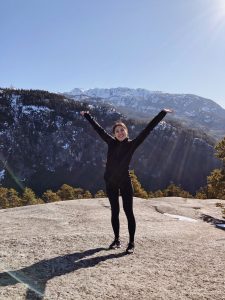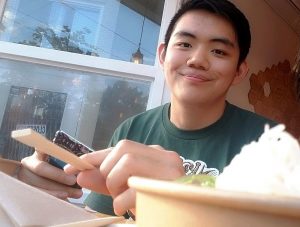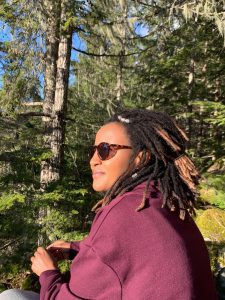Welcome to the online conference site of the Story Seekers. We are a group of students learning together in Erika Paterson’s Canadian Literature course, Oh Canada… Our home and native land?
This conference site is an intervention into the future of literature and digital media in Canada, as inspired by Larissa Lai’s intervention, “Digital Space: Electronic Circulation, Cultural Commons, and Intellectual Labour,” from Canadian Literature which highlights the structure and circulation of journals in the digital space.
In this online space, our team will engage in a growth-focused and inclusive dialogue exploring the possibilities and threats that are associated with advances in technology and media, especially in regard to sharing stories in different mediums and empowering groups that are repeatedly marginalized by dominant settler culture. With academic backgrounds in literature, mathematics and technology, our team was driven to research how technology affects the circulation of knowledge and democratizes access to knowledge. We are excited to explore how media opens up possibilities for expression in vastly new and innovative ways while also acknowledging the threats to inclusive story-telling and knowledge-sharing associated with the technological future.
Thank you for visiting our site. While you’re here, we encourage you to engage in our dialogue with your experiences, thoughts, questions, and ideas. Learning is done within communities, and we are excited to learn and develop our research with your support.
We are, Nargiza, Georgia, Chino, and Wongi.
Nargiza is currently a student at UBC completing
the final year of her BA.  She is the child of immigrants and was originally born in Tashkent Uzbekistan and moved to Vancouver from Toronto. As an immigrant, her research interests include the concept of nation-building and identity and those ideas in the context of the information age, where communities are able to proliferate through the Internet without having to be in close proximity. In social self-identification as a form of representation, to build communities but also as forms of exclusion. She has experience working in programs concerned with access to education and resources, teaching, as well as research in post-modernist philosophy.
She is the child of immigrants and was originally born in Tashkent Uzbekistan and moved to Vancouver from Toronto. As an immigrant, her research interests include the concept of nation-building and identity and those ideas in the context of the information age, where communities are able to proliferate through the Internet without having to be in close proximity. In social self-identification as a form of representation, to build communities but also as forms of exclusion. She has experience working in programs concerned with access to education and resources, teaching, as well as research in post-modernist philosophy.
Georgia is a third-year student at UBC, studying
English literature with a minor in law and
society. Growing up in British Columbia, she feels a keen sense of home surrounded by forests, mountains, and the ocean, yet struggles with the concept of belonging in a settler-colonial nation. With research interests in gender, race and social justice, Georgia is eager to explore ways of empowering communities that have been marginalized by the dominant culture. In a rapidly developing age of technology, where individuals and nations are brought closer and closer together by modern innovations, she is most interested in how to make the future more equitable, diverse, and inclusive of all peoples. Through this group conference, she is looking forward to navigating the difficult questions of how technology and media may advance justice and build possibilities for understanding, but also how it can further the institutional neglect of some voices
in preference of the powerful.
Chino is a fourth-year student at UBC, 
doing a combined major in computer science and biology. Born and raised in Manila, Philippines, he came to Vancouver for university in 2016. Coming from the Philippines, a country that was a Spanish colony for over 300 years and then further occupied by Americans for another 50 years, he has a unique perspective on historical narratives of colonization as both a settler in Canada and an Indigenous individual in his own country. Living in Canada, Chino aims to deconstruct the colonial narratives that have dominated documented history and accordingly, to understand history through the eyes of First Nations peoples. Throughout this online conference, Chino intends to challenge existing norms in digital media that prioritize popular voices and opinions. He is eager to critique these powerful outlets and voices that perpetuate white-settler cultural narratives. Chino encourages consumers of digital and social media to consume this content critically and to uplift marginalized groups and disempowered stories and opinions so that ultimately, all voices have an equal opportunity to be heard.
Wongelawit is in her last year at UBC
studying Mathematical Science. As an international student,
she had very little knowledge about First Nations Peo ple before coming to Canada. After living here for five years, she realized that there is a fundamental gap between the historic incidents that took place and the stories told when it comes to the First Nations’ history. Above all, she is deeply troubled by the fact that Canada is one of the most developed countries in the world but fails its First Nations basic human rights and downplays its history of colonization. She hopes to expand her knowledge by researching the effect of technology on stories told. She is particularly, because of her profession in technology, interested in how technology can affect the literature knowledge circulation in a negative way.
ple before coming to Canada. After living here for five years, she realized that there is a fundamental gap between the historic incidents that took place and the stories told when it comes to the First Nations’ history. Above all, she is deeply troubled by the fact that Canada is one of the most developed countries in the world but fails its First Nations basic human rights and downplays its history of colonization. She hopes to expand her knowledge by researching the effect of technology on stories told. She is particularly, because of her profession in technology, interested in how technology can affect the literature knowledge circulation in a negative way.